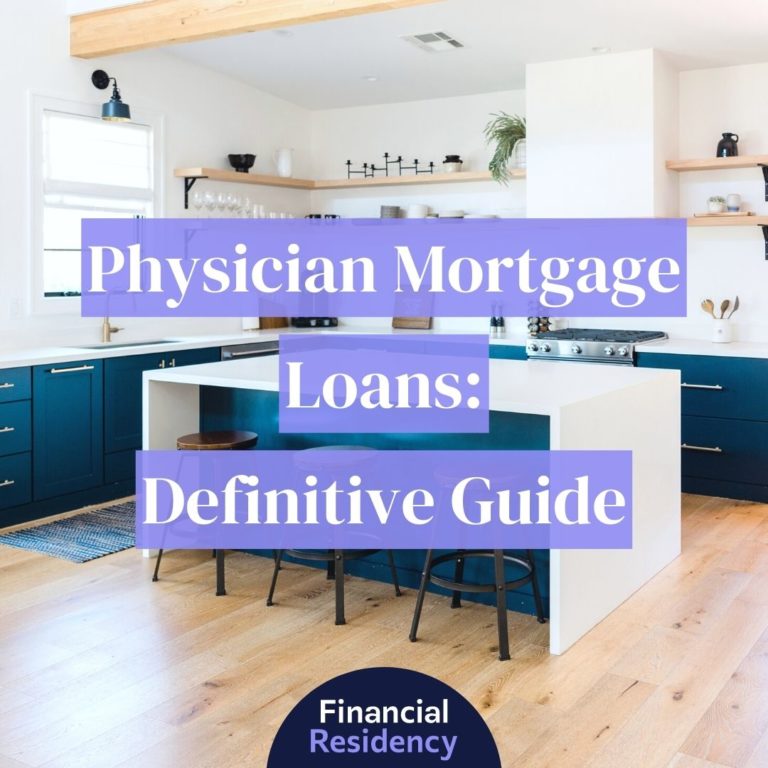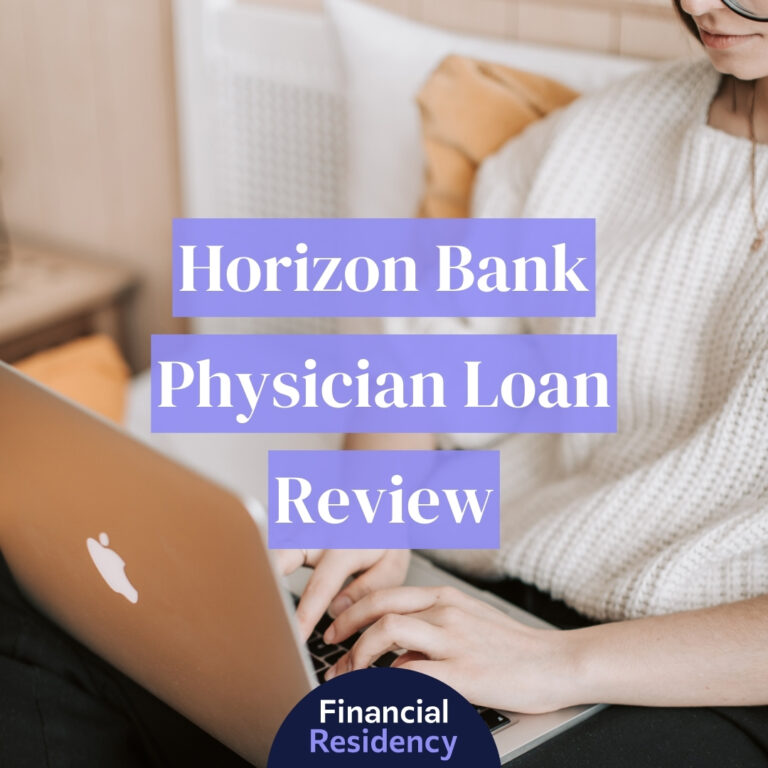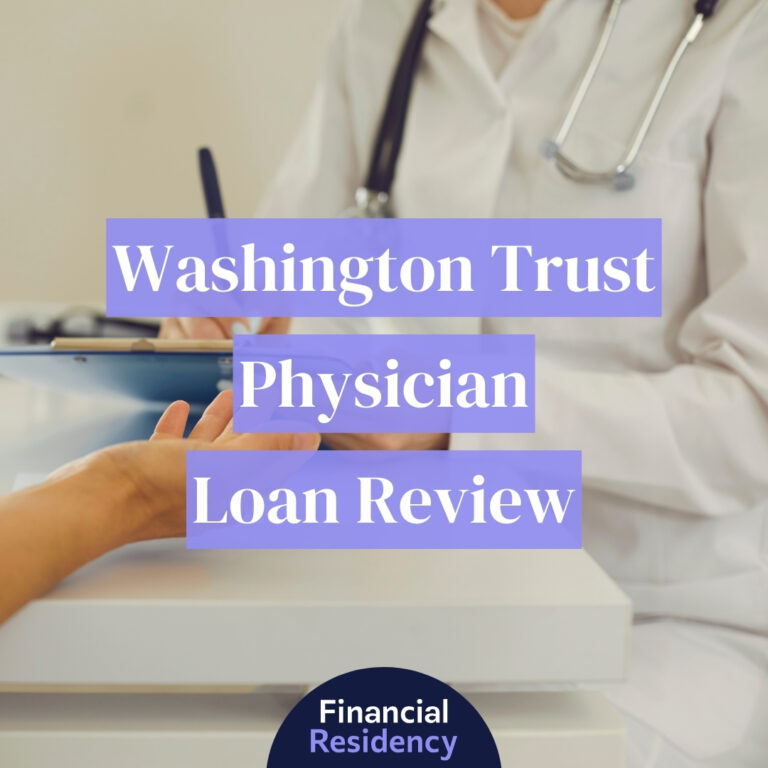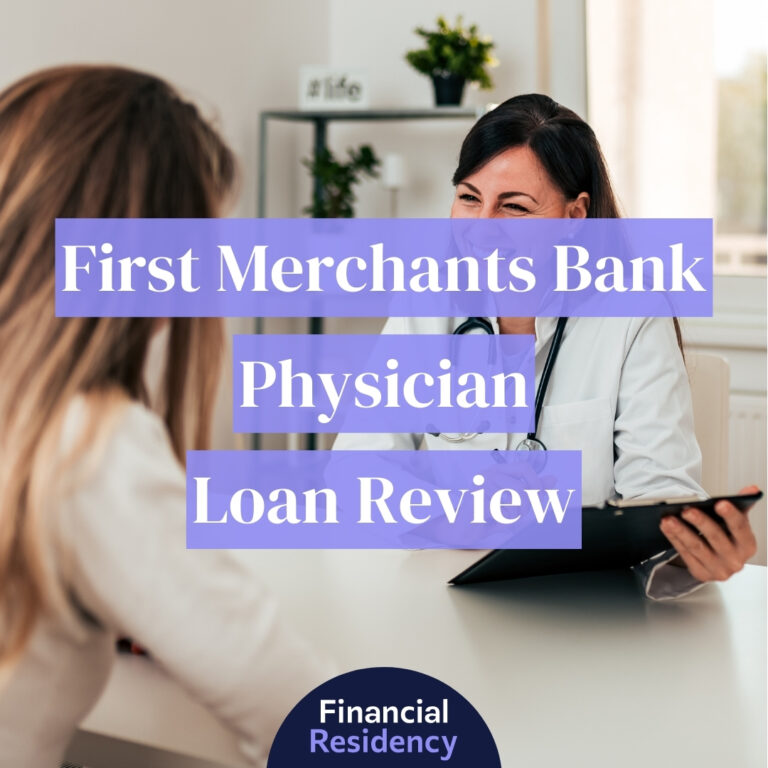The home-buying process can be an overwhelming sea of options with seemingly endless choices and analysis of confusing terms.
In this article, we’ll dive deep into Bank of America’s physician loans, so you can review the need-to-know facts to make an informed decision about your chosen loan program.
About Bank of America
Since it was founded in San Francisco in 1904, Bank of America has relocated to Charlotte, NC, and grown into one of the nation’s largest banking institutions.
It has more than 4,300 branches, plus 17,000 ATMs in 50 U.S. states and more than 40 countries worldwide.
Its longstanding legacy and easy recognition allow it to offer compelling mortgage options, lines of credit, and other loan products to those interested in homeownership.
- BBB score: A+
- CEO: Brian Moynihan
- D. Power Score: 791
- Parent company: N/A
- Phone number: 1 (800)-432-1000*
- Services offered: Consumer and business banking, payment services, corporate and commercial banking, wealth and investment management (including money markets and retirement accounts)
*General account information
Bank of America Physician Loan Fast Facts
Here are a few fast facts about Bank of America’s physician mortgage loan program.
- Discounts: Not advertised, but borrowers must have a BoA account to qualify
- Financing options: 3% down payment on loans up to $850,000; 5% down payment on loans up to $1 million; 10% down payment on loans up to $1.5 million; 15% down payments on loans up to $2 million
- Physician mortgage products: Fixed-rate and adjustable-rate mortgages with loan terms of up to 30 years
- Maximum loan amount: $2 million
- Qualifying degrees: MD, DDS, DMD, OD, DPM, DO (including medical residents and fellows)
- Private mortgage insurance: Not required
Bank of America Physician Loan Qualifications
You will need to meet a few key eligibility requirements to qualify for a Bank of America physician loan.
- Strong credit history: Borrowers must have a minimum credit score of at least 700.
- Current employment or an employment contract: You must be currently employed or have an employment contract dated within 90 days of closing.
- Eligible Degree: You must be a medical resident, fellow, practicing physician, or dentist with an MD, DDS, DMD, OD, DPM, or DO degree to qualify.
- Primary residence: The doctor mortgage loan is only available for the purchase or refinances of an owner-occupied residence.
- Down payment: You must have a 3–15% down payment to secure financing from Bank of America.
- Minimum cash reserves: BoA will need to have sufficient cash reserves to cover all debt obligations between closing (including closing costs) and employment start date if not currently employed. There may be additional cash reserve requirements depending on your loan terms.
- Relationship with the bank: You’ll need to open a checking account or savings account to establish a relationship with the bank as a condition of your physician mortgage loan.
How to Apply for a Bank of America Physician Loan
Bank of America does not accept online applications for its physician mortgage loan.
Instead, it asks all interested borrowers to contact its loan officers at 866-466-0979 to apply.
Knowing what to expect from the mortgage process can make it feel less intimidating when you’re ready to apply.
Get Pre-Qualified
Before you begin the home-buying process, it’s a good idea to get pre-qualified.
Pre-qualification will allow you to understand your budget when you start looking at houses.
Pre-qualification can be a formal process with a hard credit check and documentation or it can be an estimate based on your income and debt obligations. The loan officer will verify all the information you provide.
Pre-qualification is an offer from a lender to extend financing; it is not an official approval.
Contact A Loan Officer for Pre-Approval
Once you’ve decided to start house shopping, you should get pre-approved. Pre-approval will require you to formally apply for a mortgage. After you’ve received pre-approval, it is valid for 90 days, so you should wait to do this until you’re very motivated to purchase a home.
Some real estate professionals will require pre-approval before they’ll show you listings, so they can be sure you’re a serious buyer. Pre-approval also looks good to sellers because it signifies you have the funds to purchase and take care of the home.
If you know what house you’d like to buy, you should come prepared with property information. If not, no worries. You can always submit this information later in the process.
When you meet with the loan officer, you should be prepared to provide:
- Contact information (name, email, phone number)
- Proof of medical degree
- Purpose of the loan
- Loan amount
- Employment contract or verified income
- Location of the home
- Zip code
Gather Important Documents and Info
After you’ve been approved for a home loan, underwriters will likely have questions and requests for additional documentation.
In general, underwriters will want to see at least two months of bank statements, cash reserves in retirement, investment, and wealth management accounts, tax returns, and proof of debt.
You may be asked to explain certain deposits or withdrawals or submit letters of explanation from your employer if you’ve accrued significant overtime or earned a bonus or raise in recent years.
Physician loan officers are often knowledgeable about the unique needs of medical professionals, so they’ll be able to provide advice that streamlines the process.
Confirm and Lock Your Rate
After processing your mortgage application, your loan officer will reach out again to confirm the final details, including the loan amount and interest rate.
In some cases, you’ll want to lock your interest rate right away if your loan officer suspects the rates will rise.
In other cases, your loan officer may expect the rates to come down, so they may advise you to wait to lock until you’re putting in an offer.
After you lock in, your rate will be held for 45 days.
Bank of America Physician Loan Alternatives
We’ve prepared a few key physician loan alternatives for you to consider if your degree isn’t included in Bank of America’s doctor mortgage.
The below physician mortgage loan lenders have been extensively vetted and reviewed by our team, but it’s always a good idea to explore your options by doing your own research.
You can review a short description of various loan options below.
KeyBank
KeyBank’s medical professional mortgages are open to medical doctors and dentists with an MD, DO, DPM, DDS, or DMD degree.
The program does not have an age limit, but all applicants must currently be practicing to qualify. Interns, fellows, professors, and researchers are also eligible.
The Medical Professional Mortgage Program will lend up to a maximum of $3.5 million. Loans may be used to purchase a new home or refinance an existing property. Rate/term and cash-out refinancing options are available.
In some cases, you can even secure 100% financing depending on your credit profile, geographic location, and loan amount.
PMI is not required; no matter your down payment amount. Unlike many doctor loan programs, KeyBank’s Medical Professional Mortgage Program can be used to purchase an owner-occupied primary residence or second home.
Loans may be used to purchase a single-unit home, townhouse, or condominium. You can contact a loan officer today for a personalized experience.
U.S. Bank
U.S. Bank’s physician mortgage program is also worth considering if you’re a medical doctor or a doctor of osteopathic medicine. While the program’s exclusion of dentists makes it a bit more restrictive than the typical physician loan, it does offer financing options for current residents and fellows.
Borrowers must have a 710 minimum credit score to qualify.
If you’re on an income-driven repayment plan for your student loans, it will use your monthly payment amount when calculating your DTI ratio. If you’re in deferment, underwriters will use 2% of your total loan balance.
The program has a maximum loan amount of $2.5 million, but down payment requirements depend on the loan amount.
- 5% Minimum Down Payment for loans up to $1 million
- 10% Down Payment for loans between $1 million and $1.5 million
- 15% Down Payment for loans up to $2 million
Borrowers who open a Platinum Checking Account can qualify for a lender credit for 0.25% of their loan amount up to $1,000.
Flagstar Bank
Flagstar Bank offers one of the most inclusive professional loan programs on the market. It is open to the following high-earning professionals:
- ATP Pilot
- Attorney
- Certified Public Accountant (CPA)
- Clinical Nurse Specialist
- Doctor of Dental Medicine (DMD)
- Doctor of Dental Surgery (DDS)
- Doctor of Ophthalmology (MD)
- Doctor of Optometry (OD)
- Doctor of Osteopathy (DO)
- Doctor of Pharmacy (PharmD)
- Doctor of Podiatric Medicine (DPM)
- Medical Doctor (MD)
- Medical Resident (Educational License)
- Nurse Anesthetist (CRNA)
- Nurse Practitioner (NP)
- Physician Assistant (PA)
- Registered Nurse (RN)
- Veterinarian (DVM)
While it is more inclusive of different professions, it does have an age limit. All applicants must be within 10 years of beginning their profession to qualify.
Borrowers will need a 720 minimum credit score to qualify for 100% financing on loans up to $1 million, but low down payment options are available on loans up to $1.5 million.
All of Flagstar Bank’s professional mortgages are structured as adjustable-rate mortgages (ARMs). Adjustable-rate mortgages start with an initial fixed interest rate, but later in the loan term, the interest rate resets to a new rate relative to the loan’s index.
Like other physician loan programs, it does not require PMI.
Huntington Bank
Huntington Bank opens its physician mortgage loans to medical professionals with MD, DO, DMD, DVM, or DDS degrees. All applicants must provide proof of sufficient income history and cash reserves, typically through bank statements and an active employment contract.
The minimum requirements will vary based on the loan amount. Huntington limits 100% financing to loans up to $1 million. Loans up to $1.25 million will require a 5% minimum down payment and loans up to $2 million will require at least 10% down.
Cash-out refinancing options are available, but the overall limit is $250,000 for this type of loan. Loans may only be used to purchase a primary residence.
BMO Bank
BMO Bank extends its doctor mortgages to physicians and dentists who are interested in purchasing or refinancing their primary residence. It doesn’t provide cash-out refinancing, but you can qualify for rate/term refinancing options.
The physician program has a more lenient DTI threshold than most conventional mortgage programs. Borrowers can be approved with DTI ratios as high as 45%.
Loans may be used to purchase a single-family home, townhouse, or condominium. Applicants within 10 years of beginning their career can qualify for 95–100% financing on loans up to $1.5 million.
Loans up to $2 million will require a 10% down payment. Applicants who have been working for 10 years or more will be required to put down 10% regardless of the loan amount.
The standard adjustable and fixed-rate mortgage products are available with loan terms of up to 30 years.
Upcoming physicians can use an employment contract to qualify as long as they will begin work within 89 days of closing. Self-employed physicians can qualify without two years of income history if they can provide an employment contract that clearly states the minimum base salary.
Truist
Truist Bank doesn’t advertise much about its physician loans, but it offers a suite of loan products tailored to the needs of medical professionals, including physician lines of credit.
The physician loan program is open to MDs, DOs, DPMs, DDSs, and DMDs, including current residents. Physicians within the first 10 years of their careers can qualify for 100% financing.
The program has an age limit of 15 years after completing residency. Later career physicians will be required to put down at least 10% of the home’s purchase price. Borrowers may also refinance a property they already own.
Cash-out refinances will be limited to 80% of the home’s appraised value, however, borrowers may only take $50,000 in cash with all other funds going to pay off debt.
The program has a maximum loan amount of $2 million. Student loan debt isn’t completely excluded from DTI calculations, but underwriting will be more lenient than conventional loans.
Government-Backed Home Loans and First-Time Home Owner Programs
While physician loans are worthwhile for any qualified borrower to consider, FHA and VA loans shouldn’t be ignored. Both options are government-sponsored mortgage programs, but they have slightly different terms and requirements.
FHA loans are insured by the Federal Housing Authority, but private lenders originate and service them. FHA loans are particularly popular with first-time homebuyers.
Like physician loans, FHA loans can help you purchase a home with little money down. It’s typically 3.5% for borrowers with a 580 minimum credit score, but borrowers with a 500 credit score can still qualify with a 10% down payment. You’ll also need to be purchasing your primary residence.
VA loans are also serviced by private lenders but insured by the Department of Veteran Affairs. The VA’s loan insurance allows the lender to offer more lenient terms because they don’t have to assume the risk of default.
VA loan applicants must meet the eligibility requirements, which include stipulations on length of service and discharge status. VA loans don’t have a minimum credit score requirement and instead, take a more holistic approach to the lender’s financial profile.
An experienced mortgage broker can help you identify the mortgage program that best fits your needs.
Discover The Best Lenders Answer just a few questions about your career, where you're buying, and how much you want to borrow. Our service will then show you the exact programs you're eligible for from vetted physician loan specialists who will guide you through every step of the process – obligation-free!
Pros and Cons
Reviewing the pros and cons of Bank of America’s physician loan programs can help you make an informed decision about your financial future and home purchase.
Pros
Here are a few notable pros of Bank of America physician loans:
- Medical residents qualify: Medical residents and fellows in training can qualify for a BoA physician home loan.
- Can be used for refinancing: BoA’s physician mortgage programs can be used to refinance a primary residence you already own or purchase a new home.
- Interest rate options: Fixed-rate mortgages and adjustable-rate mortgages are available.
- Excludes student loan debt from DTI: Underwriting may exclude student loan debt when calculating debt-to-income ratio, which can make it easier to qualify if you have significant debt from medical school and undergraduate studies.
- Can use employment contract: Upcoming physicians with a signed employment contract can qualify for a doctor mortgage loan if they’ll begin work within 90 days of closing.
- No PMI: Physician mortgage loans don’t require private mortgage insurance, regardless of the down payment amount.
Cons
Here are a few cons of Bank of America physician loans to consider:
- Strict eligibility requirements: BoA physician loans are not open to veterinarians and other medical professionals usually included in doctor mortgage programs.
- Jumbo loan: Doctor mortgage loans don’t have the same loan limits as conforming loans, so it can be easy to commit to a monthly loan payment you can’t afford. You can use a mortgage payment calculator to ensure your loan fits your budget and cash flow.
- Doesn’t offer 100% financing: Unlike many mortgage lenders, BoA’s physician mortgage loan does not have a 0% down payment option.
- High minimum credit score: Borrowers must have a 700 minimum credit score to qualify, but a 720 credit score is recommended for the best interest rate options.
- May have higher interest than a conventional loan: Physician home loans occasionally have a higher interest rate than conventional loans of the same amount due to the additional risk the lender takes on.
Frequently Asked Questions
Does Bank of America require PMI?
Bank of America may require PMI for conventional mortgages, but other loan programs, such as its Doctor Loan and Affordable Loan Solution Program do not require PMI.
What are the requirements for a Bank of America physician loan?
The requirements for a Bank of America physician loan are:
- Borrowers must be practicing and hold a qualifying medical degree.
- Borrowers must have at least 3% of the home’s purchase price to use as a down payment.
- Home loan may only be used to purchase or refinance a primary residence.
If you meet these requirements, reach out to a BoA loan officer to find out more information about how to qualify.
How do I contact Bank of America loan servicing?
You can contact Bank of America loan servicing by calling 800-270-5746 for new conventional mortgage applicants, 866-466-0979 for new doctor mortgage loans, or 800-669-6607 for existing mortgages.
You also find generalized help online through customer service or your banking portal.
What credit score do you need to get a maximum doctor loan?
You need at least a 700 credit score to get a maximum doctor loan. However, the better your credit score the more competitive your interest rates and financing terms will be, in general.
Is Bank of America a good place to get a mortgage?
Yes, Bank of America is a good place to get a mortgage. In addition to physician home loans, Bank of America provides medical practice loans for doctors interested in starting a new practice, growing their practice, or purchasing an existing practice.
Contact a loan officer to find out more about BoA’s low-rate loans and down payment options.




